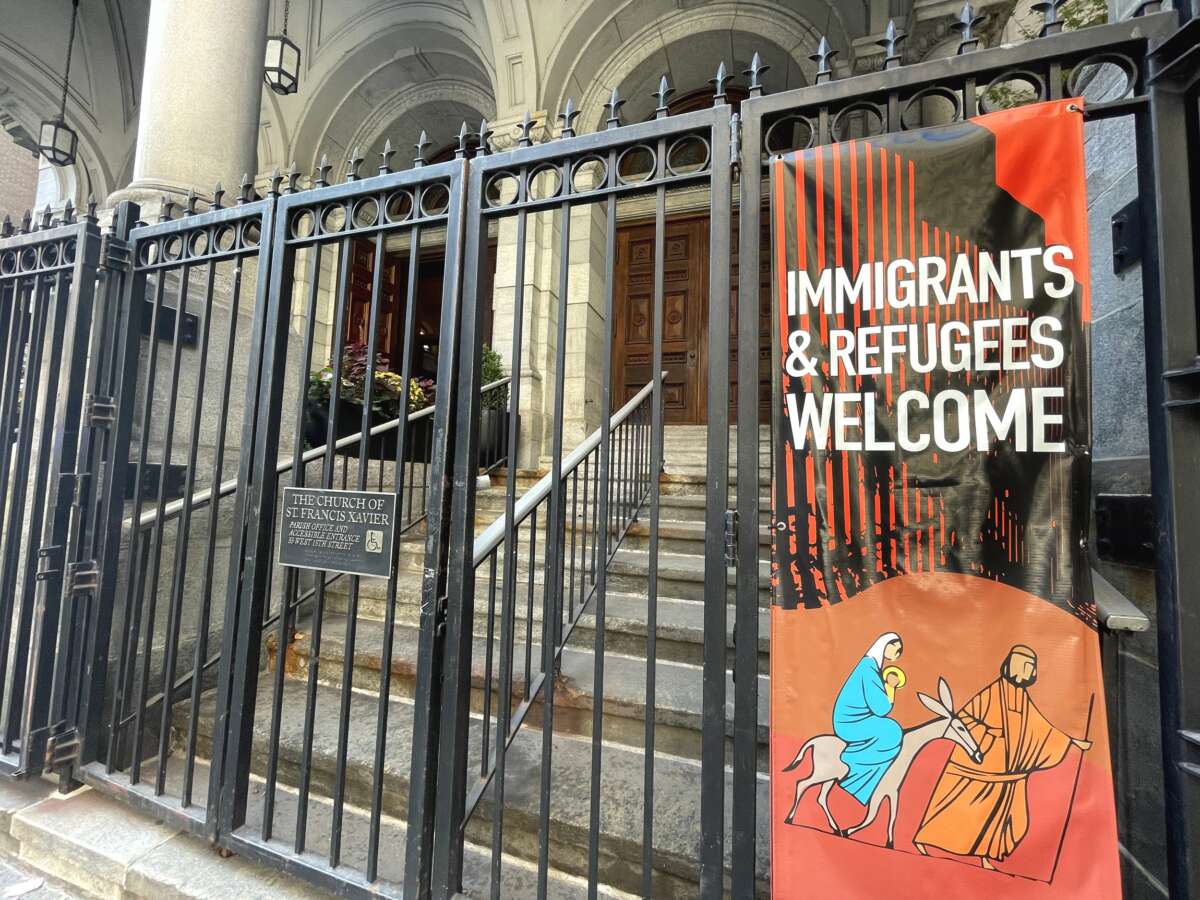Honest, paywall-free news is rare. Please support our boldly independent journalism with a donation of any size.
Dozens of religious organizations, representing millions of Christian and Jewish believers across the U.S., have filed a joint lawsuit against the Trump administration over its change in policy relating to detaining immigrants in “sensitive locations” — chiefly, in places of worship.
The Department of Homeland Security (DHS) upended decades of precedent on the second day of President Donald Trump’s second term in office last month, rescinding the sensitive locations rule that largely restricted immigration enforcement officers from raiding churches, schools, hospitals, and other places to detain people suspected of being undocumented.
The churches, synagogues and religious organizations taking part in the lawsuit, filed this week, say that the rescission of the rule is a direct violation of their religious rights, and against federal law. Plaintiffs in the lawsuit include the Mennonite Church USA, the African Methodist Episcopal Zion Church, the Central Conference of American Rabbis, the Latino Christian National Network, the Rabbinical Assembly and the Unitarian Universalist Association, among many others.
“We have immigrants, refugees, people who are documented and undocumented. … We cannot worship freely if some of us are living in fear,” said Sean Rowe, presiding bishop of the Episcopal Church, speaking to The Associated Press about the lawsuit.
“Churches are, and have always been, places of prayer, solace, and safety since the time of Jesus Christ; this does not change with any new emperor, king, or president,” said Laura Everett, executive director of the Massachusetts Council of Churches.
The lawsuit names several federal officials, agencies and departments as defendants, including DHS Secretary Kristi Noem, Customs and Border Protection, Immigration and Customs Enforcement (ICE), and others.
The religious groups “bring this suit unified on a fundamental belief: Every human being, regardless of birthplace, is a child of God worthy of dignity, care, and love,” the lawsuit states. “Welcoming the stranger, or immigrant, is thus a central precept of their faith practices.”
The suit notes that it’s been the practice of the federal government for the past three decades to restrict “immigration enforcement action in or near places of worship.” It also includes an example of how the rescission of the rule has upended lives, telling the story of a Honduran migrant named Wilson Velásquez.
After Velásquez and his family voluntarily turned themselves in to authorities after crossing the border to claim asylum, he had agreed to wear a GPS ankle monitor, was given a court date for his case, and attended all required check-ins at the Atlanta ICE office. Despite these proactive actions by Velásquez, he was arrested at his church in Atlanta anyway — in the middle of a service late last month, instilling fear in the congregants who were in attendance, the lawsuit states.
“An immigration enforcement action during worship services, ministry work, or other congregational activities would be devastating to their religious practice. It would shatter the consecrated space of sanctuary, thwart communal worship, and undermine the social service outreach that is central to religious expression and spiritual practice for Plaintiffs’ congregations and members,” the religious organizations argue, adding that the new practice “substantially [burdens] the religious exercise” of worshippers.
The suit cites the Religious Freedom Restoration Act (RFRA) as stipulating that the federal government “shall not substantially burden a person’s exercise of religion even if the burden results from a rule of general applicability.” It also cites the First Amendment to the Constitution, asserting that both the religious freedom and right to assemble clauses are being violated by the new policy.
The suit seeks preliminary, and eventually permanent, injunctions prohibiting the government “from carrying out immigration enforcement activities … [at] places of worship or during religious ceremonies, absent exigent circumstances or the existence and planned execution of a judicial warrant.”
The lawsuit filed by these organizations is similar to one filed late in January by five Quaker congregations in the U.S., which similarly asserts that the rescission of the sensitive locations policy is unlawful and unconstitutional. Since that suit was filed, a Sikh temple and a Baptist church have signed on as co-litigants.
Examples abound of religious organizations across the country becoming leaders in resisting the Trump administration’s draconian immigration policies.
“I will do whatever I can to protect the people that I serve. I’m willing to — I’m not joking — even put myself in the middle between [an immigration agent] and my congregation,” said Carlos Ramirez, a Pentecostal pastor, speaking to The Los Angeles Times last month.
Media that fights fascism
Truthout is funded almost entirely by readers — that’s why we can speak truth to power and cut against the mainstream narrative. But independent journalists at Truthout face mounting political repression under Trump.
We rely on your support to survive McCarthyist censorship. Please make a tax-deductible one-time or monthly donation.
